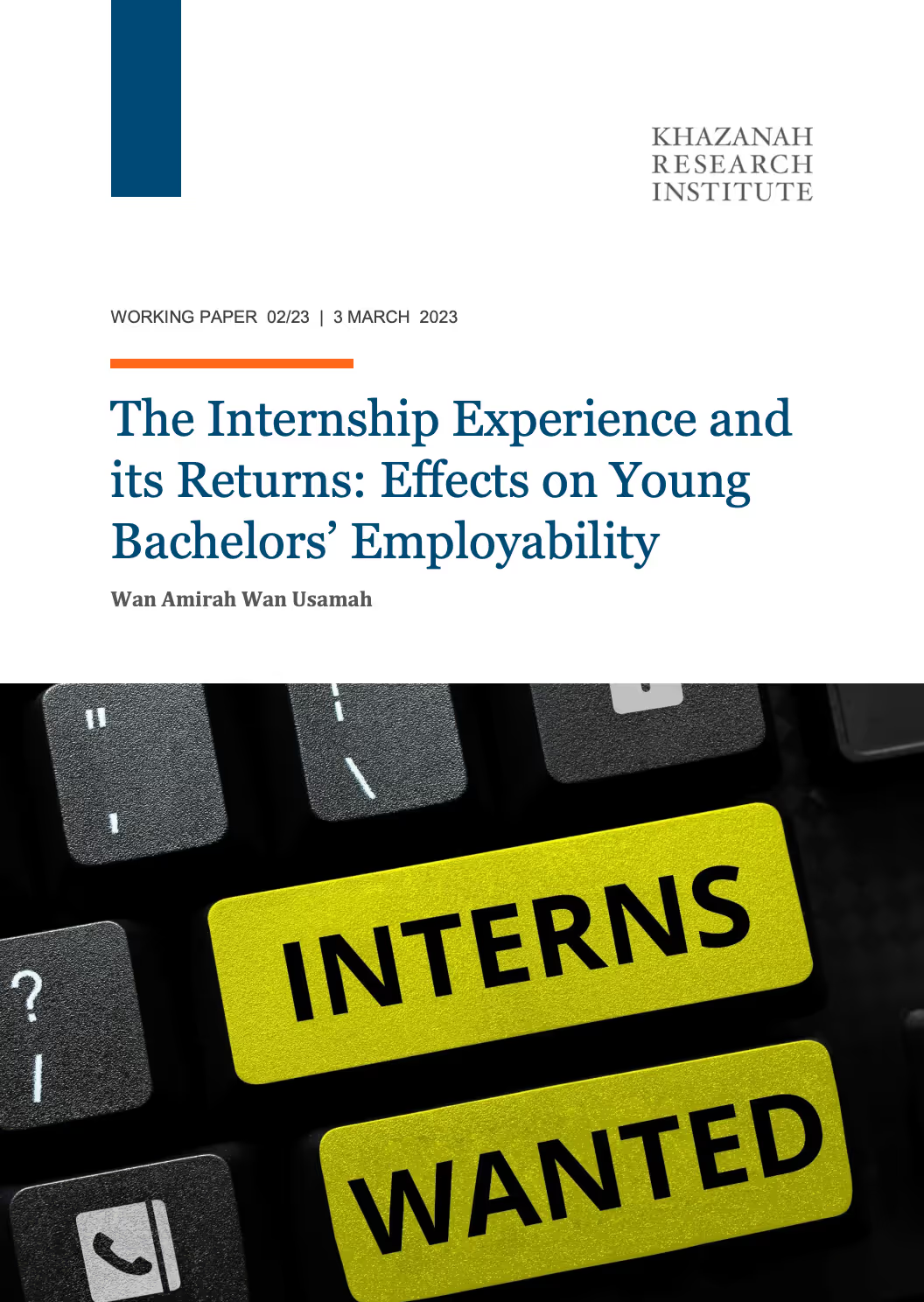
This working paper is part of KRI’s series of research for the Graduate Tracer and Employability (GTSE) project. This paper aims to illustrate the internship landscape in Malaysia from the years 2010 – 2019 as well as investigate the influence of the internship experience among bachelor’s degree holders (bachelors) on their labour market outcomes. The summary of findings and its respective policy consideration is as follows:
- More bachelors are doing an internship.
- The number of bachelors who have undergone an internship has been increasing across all fields of study. This may be spurred by the rising internship requirement set by higher education institutions (HEIs). However, independent of an internship requirement by their respective institution, the odds of a bachelor’s student undergoing an internship is associated with their field of study and their academic performance (measured by the cumulative grade point average, CGPA). The rising number of bachelors who are doing an internship and longer internship durations signals a need for the labour law and regulation to include interns as this growing source of manpower is not protected under the current employment acts.
- The effects of internship on the young bachelors’ employability are varied.
- Internship participation does not improve the bachelor’s likelihood of being employed (in any type of employment) as well as being employed in full-time and permanent job (standard employment). However, among those who are in standard employment, bachelors who have completed an internship have higher odds of being in high-skilled standard employment. Despite this, it does not influence the likelihood of them earning a higher income, defined as being above RM2,000. This implies that, when done well, internships can improve the bachelors’ skill development beyond their academic training and thus increasing their marketability towards higher-skilled jobs but issues surrounding wage may point towards a greater structural economic issue.
- Not all internship experiences are equal.
- Bachelors who have done a matched internship (where the internship industry matched their field of study) are more likely to land a job that match with their qualification. Additionally, bachelors who had interned for a longer duration or did their internship in multinational companies (MNC) or government linked companies (GLC) showed better employment outcomes in terms of occupation and income level. Bachelors who are in a paid internship also show better employment outcomes compared to their peers who are not in paid internship. Hence, beyond enforcing mandatory internship or heavily encouraging students to complete an internship, it is equally crucial to ensure that the internship experience is structured in a way that is meaningful for the students.
- The share of bachelors in paid internships have increased, but distribution is uneven.
- Overall, the proportion of bachelors who were in a paid internship has increased. However, bachelors from lower-income families, those who interned in government organisations, and those who did their internship in Perlis, Sabah, and Kelantan are less likely to be in a paid internship. While the question of whether an internship should be paid is not unique to Malaysia, it is important that Malaysia considers expanding the requirement for all internship providers to pay a fair minimum allowance to all its interns to alleviate the financial burden they may feel during their internship period.















